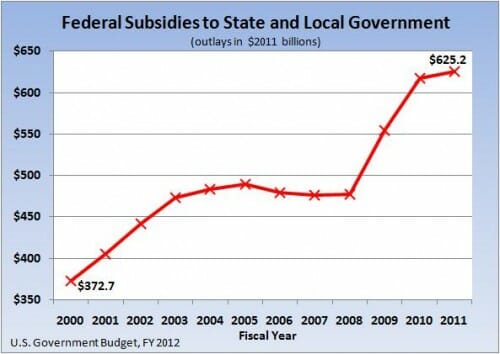Health Care Decisions by Politics, Not Science
In my Forbes columns over the past few weeks, I have been writing about information and incentive problems with any sort of Obamacare type system. One of the points I made last week was this:
One of the key selling points of Obamacare was that it would reduce cost, in large part through smart public-spirited people making optimized decisions from the top in Washington. Ignoring the fact that no other agency that has promised such angels of public service has ever delivered them, we discussed in the last few weeks how this task is impossible. But we should have known that already through our past experience with the political process. Political decisions are made politically, not by optimizing some public good equation. Does anyone believe that come election time, Congress won’t vote to add mandates to procedures to placate powerful groups in their base, irrespective of the future costs this would incur?
Need an example?
In 2007 breast cancer was the third leading source of cancer mortality in the US, but it was by far the largest recipient of government cancer research dollars, nearly double that spent on any other type of cancer. In 2009, out of hundreds of medical procedures, only two procedureswere on the mandated must-carry list of all fifty states – mammography and breast reconstruction. It is no accident that both of these are related to breast cancer. With its links to women’s groups and potent advocacy organizations, breast cancer is a disease that has a particularly powerful political lobby. Similarly, we should expect that, at the end of the day, pricing and coverage decisions under Obamacare will be made politically. Not because anyone in this Administration is particularly bad or good, but because that is what always happens.
This post from Q&O is a tad old but gets at just this point with a real-life Obamacare example
The opening line in a New York Times piece caught my attention. It is typical of how government, once it gets control of something, then begins to expand it (and make it more costly for everyone) as it sees fit. Note the key falsehood in the sentence:
The Obama administration is examining whether the new health care law can be used to require insurance plans to offer contraceptives and other family planning services to women free of charge.
Yup, you caught it – nothing involved in such a change would be “free of charge”. Instead others would be taxed or charged in order for women to not have to pay at the point of service. That’s it. Those who don’t have any need of contraception will subsidize those who do. And the argument, of course, will be the “common good”. The other argument will be that many women can’t afford “family planning services” or “contraception”.
But the assumption is the rest of you can afford to part with a little more of your hard earned cash in order to subsidize this effort (it is similar to other mandated care coverage you pay for but don’t need). Oh, and while reading that sentence, make sure you understand that the administration claims it has not taken over health care in this country.
The next sentence is just as offensive:
Such a requirement could remove cost as a barrier to birth control, a longtime goal of advocates for women’s rights and experts on women’s health.
So now “women’s rights” include access to subsidies from others who have no necessity or desire to pay for those services? What right does anyone have to the earnings of another simply because government declares that necessary?
It is another example of a profound misunderstanding of what constitutes a “right” and how it has been perverted over the years to become a claim on “free” stuff paid for by others.
Administration officials said they expected the list to include contraception and family planning because a large body of scientific evidence showed the effectiveness of those services. But the officials said they preferred to have the panel of independent experts make the initial recommendations so the public would see them as based on science, not politics.
Really? This is all about politics. The fact that the services may be “effective” is irrelevant to the political questions and objections raised above. This is science being used to justify taking from some to give to others – nothing more.

